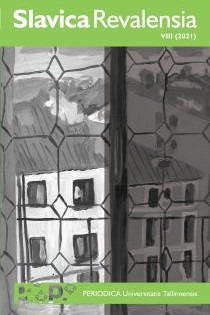Из материалов для комментария к «Капитанской дочке»: 9–11 [Notes and Queries on _The Captain’s Daughter_ (9–11)]
DOI:
https://doi.org/10.22601/SR.2021.08.11Keywords:
19th-Century Russian Literature, Alexander Pushkin (1799—1837), Kapitanskaia dochka (1836), Russo-Turkish Wars (1736—1739, 1768—1774), Military Careers, The Orthodox Prayer Book, In memoriam: Larisa Georgievna Stepanova (1941—2009)Abstract
There are three sections in this article, all concerning The Captains Daughter (Kapitanskaia dochka, 1836) by Alexander Pushkin. The first section reconstructs the hidden yet crucial train of thought launched by the elder Grinev’s reading of The Court Almanach for 1772, which comes to drive the novel’s plot in a surprising direction. The second section investigates the protagonist’s failed military career. The third section discusses Pushkin’s linguistic lapse (na son griadushchii instead of na son griadushchim), a distortion of a liturgical phrase well known to Orthodox Christians.
Downloads
Published
Issue
Section
License
Copyright (c) 2021 Slavica Revalensia

This work is licensed under a Creative Commons Attribution-ShareAlike 4.0 International License.

